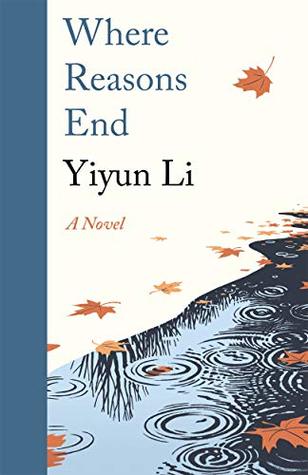More on this book
Community
Kindle Notes & Highlights
A mother’s job is to enfold, not to unfold.
Never apologize, I said, for what you have let go.
I had long ago banished a few words from my dictionary: never, always, forever, words that equate one day to another, one moment to another. Time is capricious. To say never or always or forever is a childish way to reason with caprice.
Sometimes I’m so sad I feel like a freak. That sounds like self-pity unrestrained, he said. I thought about my language. Indeed he was right. Not only was it immoderate but it was imprecise. How do you compare sadness that takes over like an erupted volcano to sadness that stays inside one, still as a stillborn baby? People talk about grief coming and going like waves, but I am not a breakwater, I am not a boat, I am not a statue left on a rocky shore, tested for its endurance. Let me revise, I said. Sometimes sadness makes me unable to write.
uncluttered, I said. Why such dislike of adjectives? I oppose anything judgmental, I said, and adjectives are opinionated words. Happy, sad. Long, short. Live, dead. Young, old. Even the simplest adjective claims such entitlement to judge. Not to mention they come with those abusive forms of the comparative and the superlative. I beg to differ, he said. A noun is a wall, an adjective is a window. I laughed. What’s so funny? There is no adjective in your astute and definitive statement, I said. Fine. How about this: A noun is a self-defeating wall, an adjective is a tenacious window.
None of the words, I thought, would release me from the void left by him.
Blueberries, I said. The first time we bought a six-ounce carton of blueberries, when you were three, it felt prodigal. It’s the adjective prodigal that tells the story, he said, not blueberries. But prodigal wouldn’t give me back memories of Nikolai as blueberries would.
I thought you said you took forever out of your dictionary. Once upon a time, I said. You put it back for me. A dictionary is not complete without the word forever, is it? Nikolai said. All words are indispensable, don’t you agree?
So in a way the word is abused. It’s deprived of its more feeling root, I said. Something happens, and it stuns us, it numbs us, it dulls us. There is much more sense and feeling involved in stupidity. How about—Nikolai said—stupid sentences so afraid of tripping on an Oxford comma that they have to avoid it. Oh, those poor sentences should not shoulder the blame for decisions they cannot control, I said. Nikolai was an adamant advocate for the Oxford comma.
Tell me about it, I thought. It was exactly three months since his death. Seasons have changed. All lives in nature have changed themselves, as ordained by the seasons. It’s later and later and later and later for them, helpless as they are to want to make permanent any kind of now. A dear friend says we only count days and weeks and months with this intensity for two reasons: after a baby’s birth, and after a loved one’s death. Three months feel as long as forever, yet as short as a single moment when it’s now and now and now and now, so I must tell my friend that there is a difference
...more
Words fall short, yes, but sometimes their shadows can reach the unspeakable. Words don’t have shadows, Mommy. They live on the page, in a two-dimensional world. Still, we look for some depth in words when we can’t find it in the three-dimensional world, no? You look for it, do you mean? I don’t look for anything now, he said.


